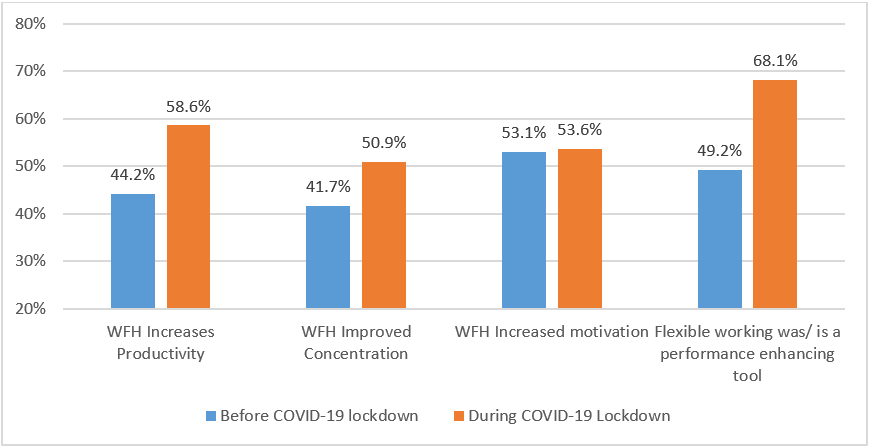
By Dr Sarah Forbes and Dr Holly Birkett
Co-directors of the Equal Parenting Project
The COVID-19 lockdown announced in March 2020 unexpectedly led to a nationwide experiment in home working. Many non-essential workers were suddenly working from home for the first time. The Office of National Statistics reported in April of 2020 that 46.6% of those in employment were working from home at least once a week up dramatically from only 5% in 2019. To understand how this dramatic change in working practice might impact future attitudes towards flexible working the Equal Parenting Project conducted two national surveys.
Our research revealed that parents have been particularly affected by homeworking during COVID-19. The lockdowns have highlighted how much unpaid work mothers do in the home, particularly routine childcare but also revealed that fathers took on significantly more unpaid work in the home during lockdown including routine childcare, although they still did less than mothers. Parents also reported positive productivity level while working from home and that the experience of being with family and loved ones for a prolonged period of time during lockdown led 76% of mothers and 73% of fathers to suggest they would like to work more flexibly in future to spend more time with their children. Furthermore, 64% of fathers and 59% of mothers also that they would like to reduce their working hours in the future to spend more time with family. As such, 55.1% planned to apply to work from home post lockdown with a further 10.5% undecided. This suggests a possible shift in ways of working longer term and in how housework and childcare may be shared between parents in the future.
Other interesting data from parents came with them reporting they are now less likely to believe they need to be physically present in the workplace in order to advance their careers. There was also data showing that fathers that took more than two weeks paternity leave after the birth or adoption were more likely to share care equally during lockdown. Another interesting change has been that employees are suggesting managers are more understanding of their caring responsibilities outside work with 72.7% saying managers cared about the effects of their work demands on their personal life since lockdown compared to 65.9% before. This all suggests that cultural and social norms around flexible working and caring are changing.
For a more complete picture of how employees are likely to work in the future the Equal Parenting Project also explored the experiences of managers to see if their attitudes around flexible working had changed as a result of mass homeworking during COVID-19. Both qualitative and quantitative data was collected and we found that managers increasingly saw flexible working as a performance enhancing tool after the first lockdown at 68.1% since lockdown compared to 49.2% before lockdown. Indeed, 58.6% reported working from home increased productivity since lockdown up from 44.2% before lockdown.

Managers were most likely to speak about positive experience during lockdown highlighting that their team was very productive and that they had in fact overcome their previous cynicism toward working from home. Indeed where performance problems were ever discussed these were due to ongoing performance issue not issues resulting from homeworking.
Due to positive experiences during lockdown, 70.1% of managers surveyed said their organisations would support more flexible working requests in the future. 49.1% of managers also said they would make more senior roles available homeworking in the future, as well as 19.3% job shares and 19.0% that their organisation would make more senior roles available for part time working in the future. This would mean more opportunities for returning mothers in senior roles which is likely to help reduce the gender pay gap.
Mass use of new technology and changing cultural norms regarding where, when and how we work has presented Employers with an opportunity. Employers recognise that employees want more flexibility making flexible working an important tool for recruiting and retaining talent in the future. In addition, new pools of talent have opened up as work can increasingly be done remotely from anywhere in the country (or beyond) and clients have become more flexible in their approach. All these changes are particularly likely to help working parents.
There are some areas where employers should take care when designing future working practices. For example, avoid the assumption that everyone wants to work flexibly and shut office space, data from employees and managers is clear that employees need opportunities to come into the office or work from the office permanently. Employers also need to consider how to manage the potentially negative consequences of homeworking such as work intensification or deterioration in mental health ensure they have good policies with the right tools and support in place so that flexible working can work for all.
The COVID -19 mass experiment in homeworking have arguably broken down a lot of the myths and concerns about homeworking and by extension started debates about other forms of flexible working and family friendly policies. These changes in cultural and social norms around flexible working would have taken decades to realise had it not been for COVID-19.
Recommendations for Employers
- Review your flexible working policies in light of COVID-19 working experiences to make them inclusive and recognise the support required to make flexible working effective. Particularly consider how to make them more appealing to male employees.
- Review family friendly policies to recognise that all parents might want to be actively involved in caring, not just mothers. Specifically compare paternity leave policies to maternity leave policies.
- Improve internal communication of flexible working (FW) policies to all employees.
- Advertise all positions (if possible) as open to FW as a strategy for improving employee attraction and inclusion.
- Invest in new ways to connect with employees, to recognise their contribution and to celebrate successes when they are working remotely.
This article has been produced as part of the 2021 Growth Through People campaign and is informed by new research by the Equal Parenting Project, part of the Work Inclusivity Research Centre (WIRC) at the University of Birmingham, based on Managerial and Employee experiences of homeworking during lockdown.
- More about Dr Sarah Forbes at the University of Birmingham
- More about Dr Holly Birkett at the University of Birmingham
- More about the Equal Parenting Project
The views and opinions expressed in this article are those of the author and do not necessarily reflect the official policy or position of the University of Birmingham.
